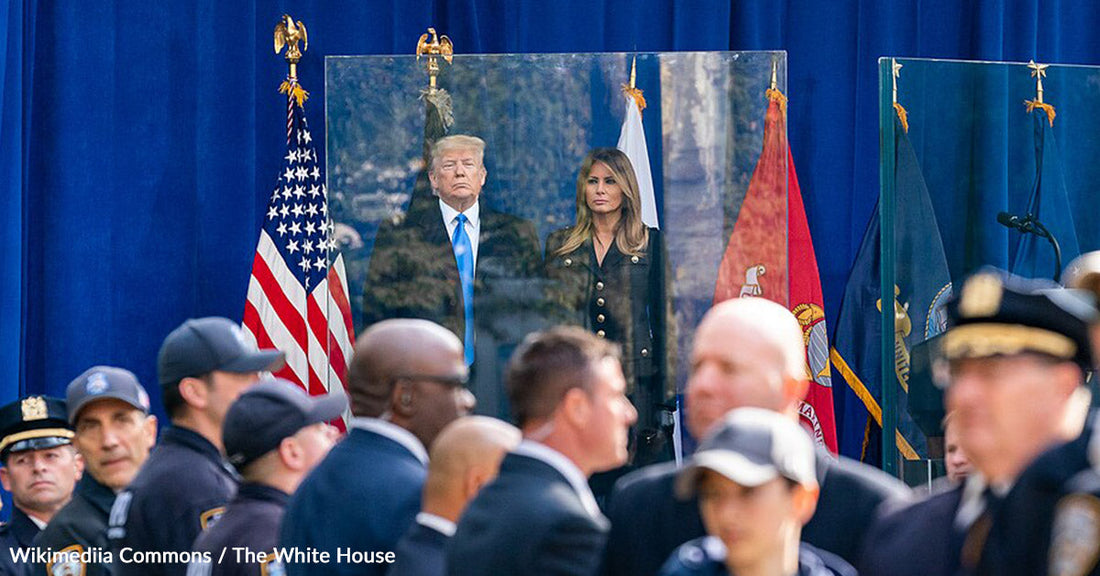Trump’s Proposal to Rename Veterans Day Sparks National Debate
Matthew Russell
President Donald Trump recently revealed plans to rename Veterans Day, observed on November 11, to "Victory Day for World War I." The proposal, posted late on Truth Social, has raised significant debate.
Trump argued that the U.S. has never properly celebrated its military victories, particularly those in World War I and World War II.
He stated, "We won both wars, nobody was close to us in terms of strength, bravery, or military brilliance, but we never celebrate anything," Military Times reports.
Currently, Veterans Day honors all U.S. veterans, but Trump's proposal would narrow the focus to victories in the world wars. While some support the move, others argue that it risks sidelining veterans of other conflicts like Korea, Vietnam, and the wars in Iraq and Afghanistan.

Photo: Wikimedia Commons / The White House , License: Public Domain
Trump wants to rename Veterans Day to “Victory Day for World War I."
What Does This Mean for Veterans Day?
Veterans Day was first established as Armistice Day in 1919 to commemorate the end of World War I. Over time, it expanded to honor veterans from all U.S. wars. In 1954, following the Korean War, the holiday was redefined to include all veterans, not just those from World War I. By 1968, Veterans Day became a federal holiday, serving as a solemn occasion to honor U.S. service members.
Trump’s proposal to rename it as “Victory Day for World War I” would disrupt nearly 90 years of tradition. Critics question whether this move adequately honors the diverse contributions of U.S. veterans across multiple conflicts. The shift might risk undermining the original intent of Veterans Day, which was to honor veterans of all wars, The Hill reports.

Photo: Wikimedia Commons / The White House , License: Public Domain
The proposed change would break an 87-year tradition.
Victory Day for World War II: A New Federal Holiday?
In addition to changing Veterans Day, Trump also proposed designating May 8 as "Victory Day for World War II." May 8 marks Victory in Europe (VE) Day, the day when Germany's surrender ended the war in Europe. Although May 8 is widely commemorated as VE Day in many nations, the war officially ended for the U.S. months later, after Japan's surrender in September 1945. Trump believes the U.S. should establish a new holiday to recognize its role in securing victory during WWII, but the move would require Congress to pass new legislation, Axios reports.
Currently, May 8 is not a federal holiday in the U.S., so Trump’s proposal would require significant legislative backing. Many people, particularly within the veteran community, might question whether a new holiday focusing solely on WWII is appropriate given the sacrifices of those who fought in subsequent conflicts.

Photo: Wikimedia Commons / The White House , License: Public Domain
His proposal also includes making May 8 "Victory Day for World War II."
Legal Hurdles and Congressional Approval
For the renaming of Veterans Day and the creation of "Victory Day for World War II" to become a reality, Congress would need to pass new legislation. Federal holidays are established through acts of Congress, and for Trump’s changes to take hold, lawmakers would need to approve the shift.
There is no guarantee that the proposal will garner support, especially considering that Veterans Day is already a well-established holiday that honors all military service members. According to ABC News, the legal process to establish a new holiday is complex and requires broad political support.

Photo: Wikimedia Commons / The White House , License: Public Domain
The renaming would honor U.S. military victories but narrow the holiday’s focus.
The Global Perspective
Trump's statement that the U.S. "did more than any other country" in winning WWII could stir international controversy, particularly with Russia, which commemorates WWII as the "Great Patriotic War" and suffered tremendous losses. The United Kingdom, too, might find Trump’s assertion problematic, given the devastating impact of the Blitz. Trump’s call to emphasize U.S. military dominance risks alienating those who view WWII as a shared victory among many nations, VT reports.

Photo: Wikimedia Commons / The White House , License: Public Domain
Veterans Day currently honors all U.S. veterans from all wars.
A Controversial Proposal
President Trump's proposal to rename Veterans Day and create a new "Victory Day for World War II" is stirring up debate. While it reflects a desire to honor U.S. military triumphs, it also risks narrowing the focus and diminishing the broader history of American military service.
The fate of this proposal rests with Congress, and it remains to be seen whether lawmakers will embrace these changes or push back against them.
Click below to make a difference.

